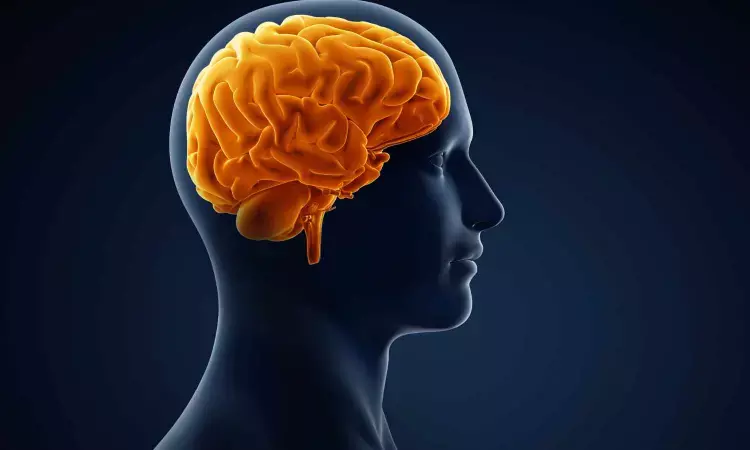- Home
- Medical news & Guidelines
- Anesthesiology
- Cardiology and CTVS
- Critical Care
- Dentistry
- Dermatology
- Diabetes and Endocrinology
- ENT
- Gastroenterology
- Medicine
- Nephrology
- Neurology
- Obstretics-Gynaecology
- Oncology
- Ophthalmology
- Orthopaedics
- Pediatrics-Neonatology
- Psychiatry
- Pulmonology
- Radiology
- Surgery
- Urology
- Laboratory Medicine
- Diet
- Nursing
- Paramedical
- Physiotherapy
- Health news
- Fact Check
- Bone Health Fact Check
- Brain Health Fact Check
- Cancer Related Fact Check
- Child Care Fact Check
- Dental and oral health fact check
- Diabetes and metabolic health fact check
- Diet and Nutrition Fact Check
- Eye and ENT Care Fact Check
- Fitness fact check
- Gut health fact check
- Heart health fact check
- Kidney health fact check
- Medical education fact check
- Men's health fact check
- Respiratory fact check
- Skin and hair care fact check
- Vaccine and Immunization fact check
- Women's health fact check
- AYUSH
- State News
- Andaman and Nicobar Islands
- Andhra Pradesh
- Arunachal Pradesh
- Assam
- Bihar
- Chandigarh
- Chattisgarh
- Dadra and Nagar Haveli
- Daman and Diu
- Delhi
- Goa
- Gujarat
- Haryana
- Himachal Pradesh
- Jammu & Kashmir
- Jharkhand
- Karnataka
- Kerala
- Ladakh
- Lakshadweep
- Madhya Pradesh
- Maharashtra
- Manipur
- Meghalaya
- Mizoram
- Nagaland
- Odisha
- Puducherry
- Punjab
- Rajasthan
- Sikkim
- Tamil Nadu
- Telangana
- Tripura
- Uttar Pradesh
- Uttrakhand
- West Bengal
- Medical Education
- Industry
Early signs of heart problems linked to smaller brain volumes, suggests study

People who have early signs of heart problems may also have changes in brain health that can be early signs of dementia, such as loss of brain volume, according to a meta-analysis published on March 26, 2025, online in Neurology®, the medical journal of the American Academy of Neurology. The meta-analysis does not prove that early heart problems cause loss of brain cells; it only shows an association.
“This review shows that better heart health is associated with larger brain volumes, suggesting that the preservation of heart function could help maintain brain health and memory and thinking skills during the aging process,” said meta-analysis author Frank J. Wolters, MD, PhD, of Erasmus University Medical Center in Rotterdam, the Netherlands. “These results add to the importance of early detection and treatment of heart problems.”
The meta-analysis included seven studies from Europe and the United States with a total of 10,889 participants with an average age of 67. The studies measured early signs of heart problems, including systolic and diastolic dysfunction. Systolic dysfunction is when the left ventricle of the heart can’t contract normally and pump blood efficiently. Diastolic dysfunction is when the left ventricle does not relax properly between heartbeats and fill with blood. The studies also used MRI brain scans to measure brain volumes.
The meta-analysis found that people with moderate to severe systolic dysfunction were more likely to have a smaller total brain volume than people with normal systolic function. People with diastolic function problems also had a smaller total brain volume and smaller volume in the hippocampus area of the brain, which plays a role in memory.
“The meta-analysis shows that even mild diastolic dysfunction is associated with adverse brain health,” Wolters said. “Evaluating people who have heart problems-especially impaired diastolic function-for problems with memory and thinking skills could help us detect any cognitive decline early and start interventions.”
Wolters noted that additional studies are needed to investigate the relationship between heart health and brain health, particularly to link imaging findings to important health outcomes.
A limitation of the meta-analysis was that the majority of participants were white people, so the results cannot be generalized to more diverse populations.
Reference:
Yaqub, A., et al. (2025) Clinical and Imaging Markers of Cardiac Function and Brain Health. A Meta-Analysis of Community-Based Studies. Neurology. doi.org/10.1212/WNL.0000000000213421.
Dr Kamal Kant Kohli-MBBS, DTCD- a chest specialist with more than 30 years of practice and a flair for writing clinical articles, Dr Kamal Kant Kohli joined Medical Dialogues as a Chief Editor of Medical News. Besides writing articles, as an editor, he proofreads and verifies all the medical content published on Medical Dialogues including those coming from journals, studies,medical conferences,guidelines etc. Email: drkohli@medicaldialogues.in. Contact no. 011-43720751


